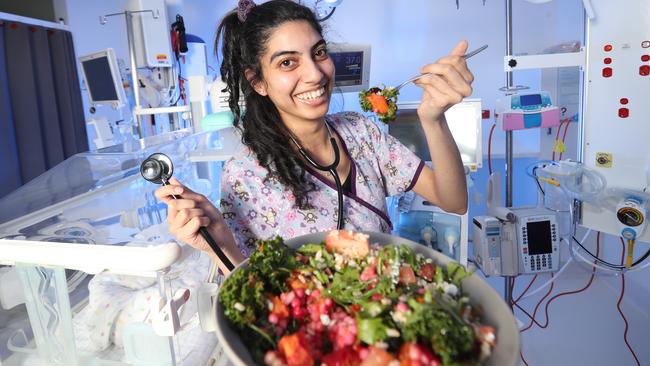World-first study to target weight gain in night shift workers
More than 1.5 million Australians are regular shift workers, a practice that interrupts normal eating and sleeping, which can cause unhealthy weight gain. But could switching meal times be the magic bullet?
VIC News
Don't miss out on the headlines from VIC News. Followed categories will be added to My News.
Changing the timings of meals and restricting calories overnight could be the magic recipe shift workers need in the battle against the bulge and disease.
More than 1.5 million Australians — about 20 per cent of the workforce — are regular shift workers, a practice that interrupts normal eating and sleeping patterns, and can limit the chance to exercise.
Monash University researchers say working against the body clock can be a recipe for weight gain, consequently putting shift workers at greater risk of diabetes and heart disease.
They are starting a world-first $1.4 million study to test three new weight loss strategies in this group by comparing the effects of intermittent fasting and energy restriction.

Lead researcher associate professor Maxine Bonham, from the Department of Nutrition, Dietetics and Food, said there was growing evidence that it is not only what you eat that is important, but when you eat.
Previous Monash research has shown that while shift workers consume a similar amount of energy across the day to those to work 9-5, they are at greater risk of obesity and metabolic disease.
“Your body is preparing to wind down and go to bed at night,” Dr Bonham said.
“All the processes of digestion slow down and get ready for an overnight fast and yet shift workers expect their bodies to deal with food at a time they’re not ready.”

With colleagues from University of South Australia, they will recruit 420 nightshift workers to follow one of the three eating plans for six months and be followed for another year of monitoring.
“We know it can be hard to stick to weight loss regimes, especially when you’re a shift worker, so we needed to test diets that were flexible and easy to follow,” she said.
“If you can minimise the amount of food you’re eating in that overnight period when your body is wanting to sleep, we think that may have implications for weight loss and reducing diabetes risk.”
Monash Children’s Hospital nurse Mariah D’Cunha spends two weeks on night shift every six weeks caring for the state’s tiniest patients in the neonatal intensive care unit.
MORE NEWS:
CELEBS DEFEND MIDWIFE PUT ON NOTICE
‘I WAS OVEREATING: HOW MCGOVERN SHED 5KG
PUSH TO RECRUIT BUBS FOR ALLERGY TEST
During her first break at midnight — three hours after starting her shift — the 24-year-old will typically eat a ham and salad sandwich.
On her next break at 5am she will have pasta to get her through to her 7am clock-off.
“I try and get as much sleep as possible during those shifts, drink lots of water and eat healthy,” she said.
To take part in the trial go to monash.edu.au/swiftstudy


